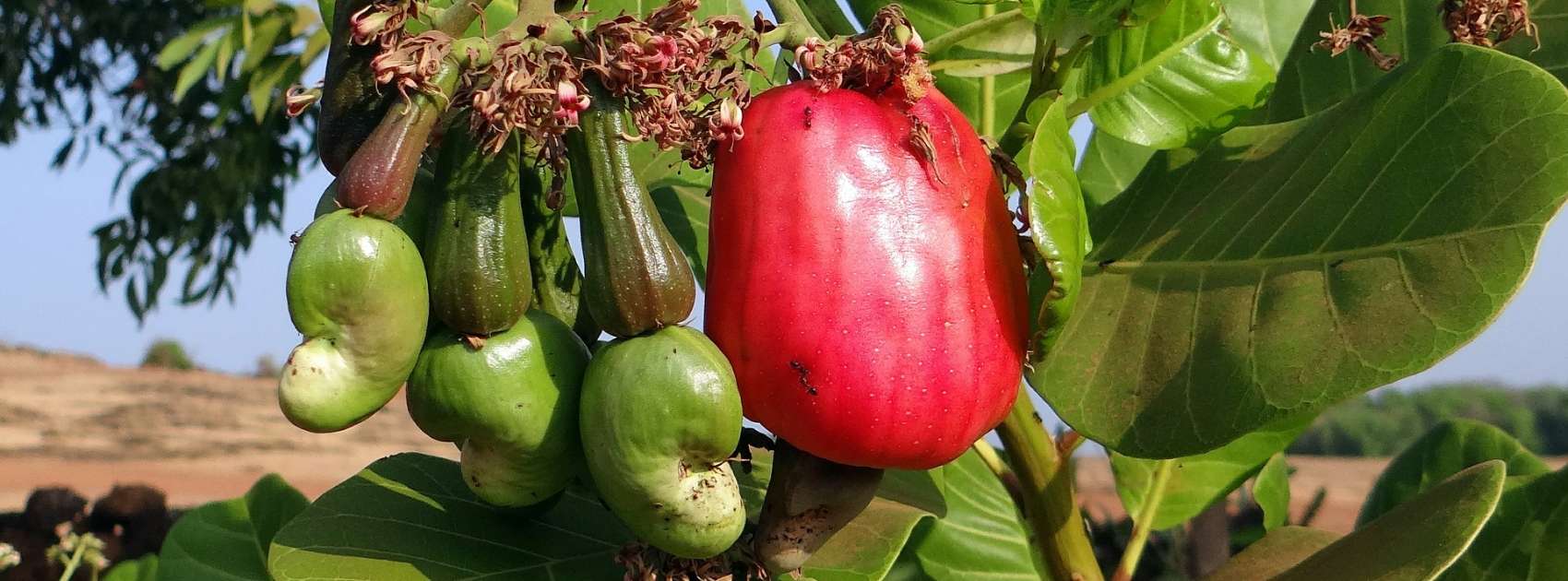Guinea-Bissau
As a least-developed country (LDC), Guinea-Bissau is a beneficiary of the EU's "Everything but Arms" (EBA) arrangement. The World Bank classifies Guinea-Bissau as a low-income economy with a per-capita income of $963 in 2024. Total EU imports from Guinea-Bissau amounted to about €3.9 million in 2024; none of these were made using the EBA preferences.
What is the EBA?
The EBA arrangement covers all LDCs as classified by the United Nations. This arrangement enables duty-free and quota-free access for all products originating in LDCs except for arms and ammunition. Unlike beneficiaries of the Standard GSP and GSP+, LDCs are not excluded from the scheme if they benefit from other preferential arrangements or agreements with the EU.

2.2M (2024)
Population
Semi-Presidential Republic
Government
4.8% (2024)
GDP Growth
3.8% (2024)
Inflation
$ 2.1B (2024)
GDP
Facts about Guinea Bissau's economy
Export Products
Guinea Bissau's top export products in 2024 were cashew nuts and fish meal.
Cashew Production
Guinea Bissau is the world’s sixth largest producer of cashews and the second largest producer in West Africa. The Cashew sector is one of the cornerstones of the country’s economy.
Trade Partners
Singapore, the EU, China, and Senegal accounted for the largest share of Guinea Bissau's trade (more than 80% in 2024). The most important export markets for products from Guinea-Bissau are Singapore (67%) and China.
Economic Structure
The economy is based mainly on services (42% of GDP in 2024) and agriculture (37%). Agriculture supports the livelihood of about 80% of the population. Industrial activity so far is limited to a number of small-scale operations mainly in the area of agricultural processing and beverages.
Usage of EBA Preferences
Because most of Guinea Bissau's exports can enter the EU market duty free under the normal tariff regime, only about 8% of EU total imports from Guinea Bissau were eligible for EBA preferences in 2024. None of these used the preferences.
Trade with the EU
Total trade with the EU amounted to €109 million in 2024. The EU is the second most important trading partner for Guinea Bissau, accounting for 16% of overall trade. 37% of the country's imports originate from the EU while only 1% of exports goes to the EU market.
Guinea Bissau and the EU
Imports from Guinea Bissau by product section (2024, € million)
Imports from Guinea Bissau over time (€ million)
GUINEA BISSAU AND THE EU GSP
Economic Impact
8%
Share of Guinea Bissau's exports to the EU that were eligible for EBA preferences in 2024.
0%
Guinea-Bissau has not used EBA preferences in 2024
92%
Share of zero-duty imports from Guinea-Bissau in 2024. Most imports are duty-free under normal EU tariffs.
Preference utilisation and export diversification
EU imports from Guinea-Bissau (€ million)
Preference utilisation (%) vs. total eligible imports (in € million)
Guinea-Bissau’s preference-eligible exports are small in absolute terms. Still, the preference utilisation rate was high in recent years, at 88% in 2022 and 90% in 2023, but in 2024 no preferential exports to the EU were registered.
The largest product sections under EBA (€ million, 2024)
Preference-eligible imports from Guinea-Bissau are small, remaining well below €1 million in recent years. In 2024, for the first time in years, no preferences were used.
SUSTAINABLE DEVELOPMENT
As a beneficiary of the EBA, Guinea-Bissau is not required to ratify any conventions to be able to benefit from preferential access to the EU market. Nonetheless, the country has ratified all 27 international conventions listed in the GSP Regulation on human and labour rights, environmental protection and good governance. Most recently, in 2023, it ratified the ILO Convention No. 87 on Freedom of Association.
Core international conventions on human rights and labour standards
Ratified
- Convention on the Prevention and Punishment of the Crime of Genocide (1948)
- International Convention on the Elimination of All Forms of Racial Discrimination (1969)
- International Covenant on Civil and Political Rights (1976)
- International Covenant on Economic Social and Cultural Rights (1976)
- Convention on the Elimination of All Forms of Discrimination Against Women (1981)
- Convention Against Torture and other Cruel, Inhuman or Degrading Treatment or Punishment (1987)
- Convention on the Rights of the Child (1990)
- Convention concerning Forced or Compulsory Labour, No 29 (1930)
- Convention concerning Freedom of Association and Protection of the Right to Organise, No 87 (1948)
- Convention concerning the Application of the Principles of the Right to Organise and to Bargain Collectively, No 98 (1949)
- Convention concerning Equal Remuneration of Men and Women Workers for Work of Equal Value, No 100 (1951)
- Convention concerning the Abolition of Forced Labour, No 105 (1957)
- Convention concerning Discrimination in Respect of Employment and Occupation, No 111 (1958)
- Convention concerning Minimum Age for Admission to Employment, No 138 (1973)
- Convention concerning the Prohibition and Immediate Action for the Elimination of the Worst Forms of Child Labour, No 182 (1999)
Additional Conventions
- Convention on International Trade in Endangered Species of Wild Fauna and Flora (1973)
- Montreal Protocol on Substances that Deplete the Ozone Layer (1987)
- Basel Convention on the Control of Transboundary Movements of Hazardous Wastes and Their Disposal (1989)
- Convention on Biological Diversity (1992)
- The United Nations Framework Convention on Climate Change (1992)
- Cartagena Protocol on Biosafety (2000)
- Stockholm Convention on Persistent Organic Pollutants (2001)
- Kyoto Protocol to the United Nations Framework Convention on Climate Change (1998)
- United Nations Single Convention on Narcotic Drugs (1961)
- United Nations Convention on Psychotropic Substances (1971)
- United Nations Convention against Illicit Traffic in Narcotic Drugs and Psychotropic Substances (1988)
- United Nations Convention against Corruption (2004)
EU-Guinea Bissau Bilateral Development Cooperation
DG INTPA
Access all info about EU-Guinea Bissau relations on the International Partnerships website.
